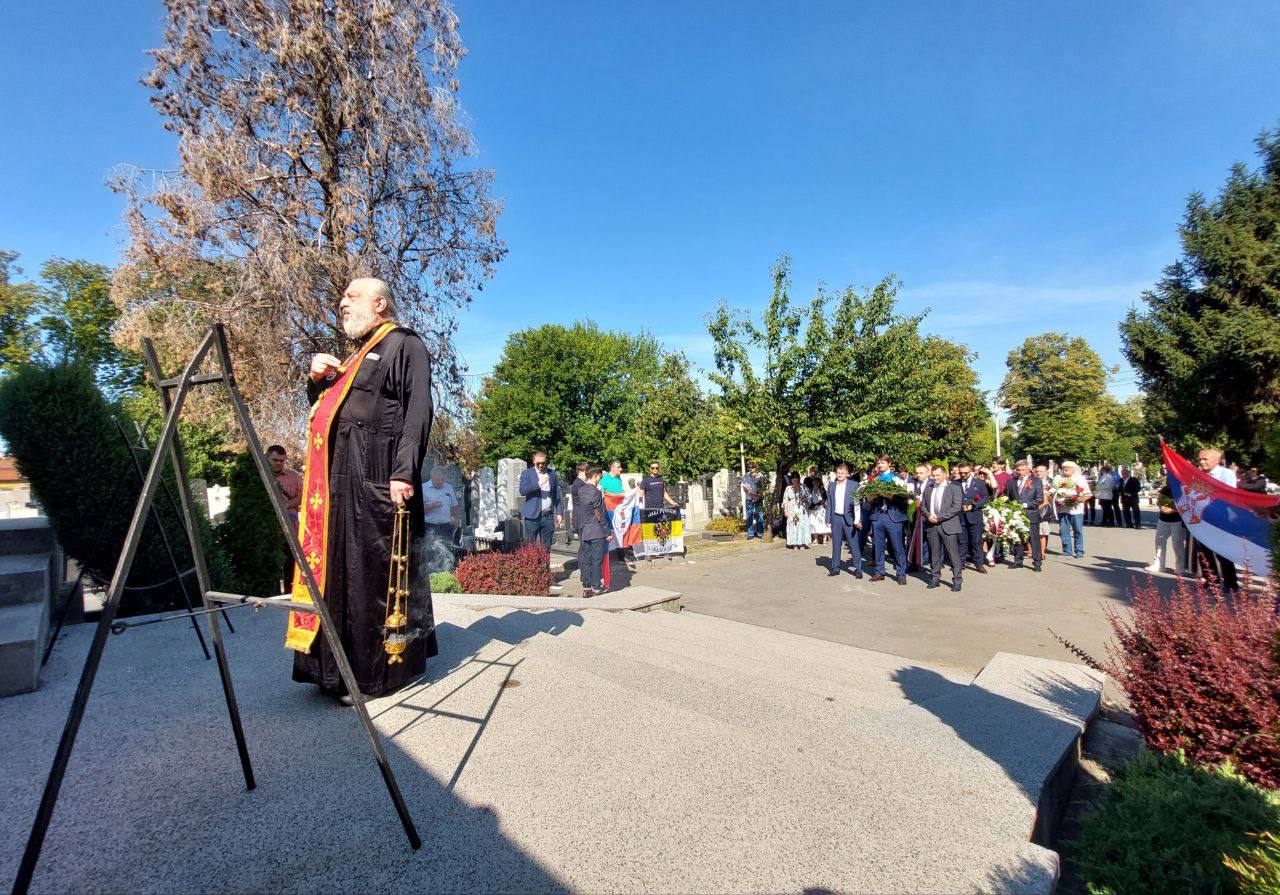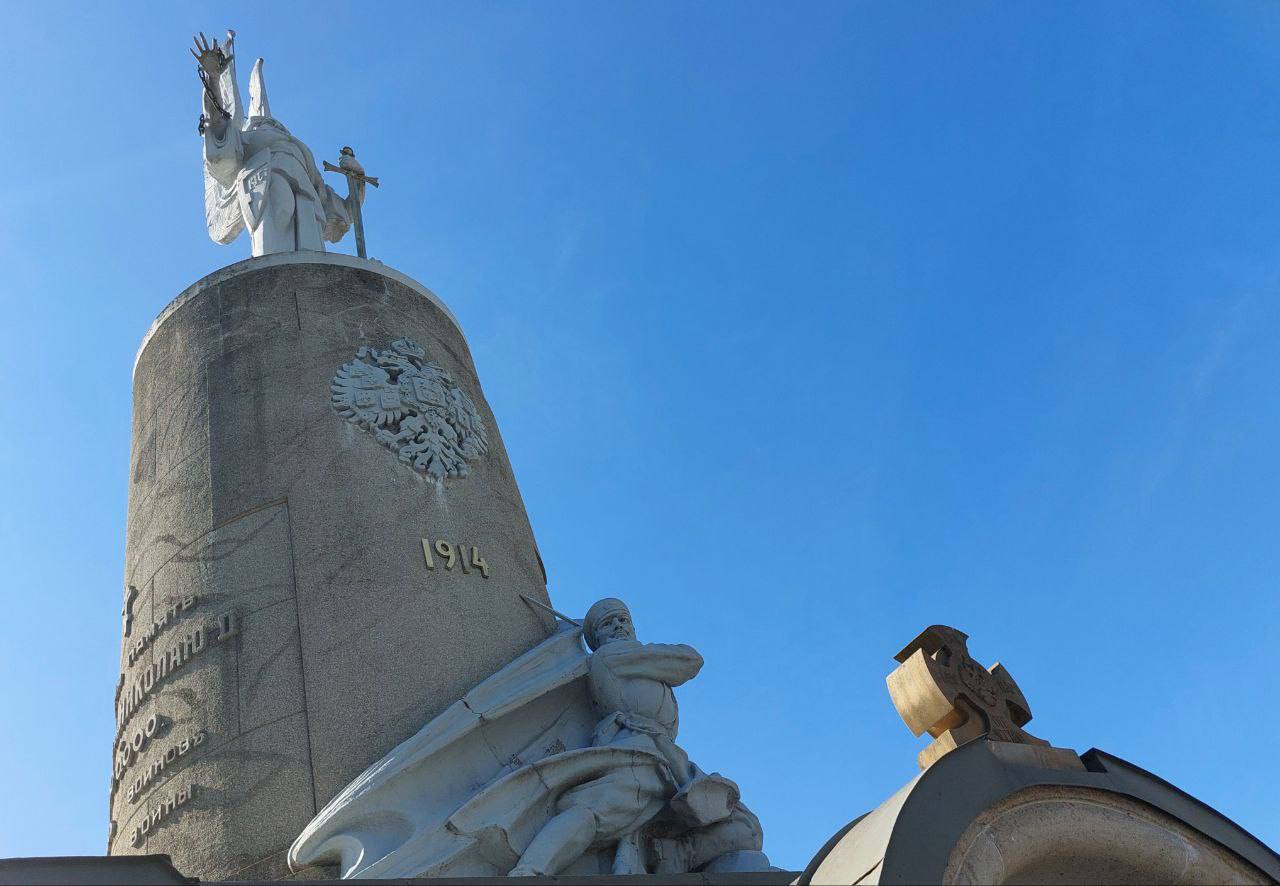
Department for External Church Relations
The site uses cookies to help show you the most up-to-date information. By continuing to use the site, you consent to the use of your Metadata and cookies. Cookie policy
Belgrade commemorates Russian soldiers who died in World War I


DECR Communications Service, 03.08.2024.
On August 1, Remembrance Day of the Russian soldiers who died in the First World War of 1914-1918, a requiem service was celebrated at the memorial at the Russian Necropolis in the New Cemetery of Belgrade. Archpriest Vitaly Tarasjev, rector of the metochion of the Russian Orthodox Church in the capital of Serbia, officiated.
Before the prayer, a solemn ceremony of laying wreaths at the memorial took place. Telegram channel of the Russian Foreign Ministry reports that participating in the ceremony were Ninoslav Jovanović, State Secretary at the Ministry of Labour, Employment, Veteran and Social Affairs of Serbia; Nikola Vukelić, State Secretary at the Ministry of Family Welfare and Demography of Serbia; Goran Milenković, Deputy Minister for Countryside Issues of Serbia; diplomats fr om the Russian Embassy, representatives of the authorities of some Serbian cities and municipalities, veteran and public organizations, associations of Russian compatriots and Russia-Serbia friendship societies.
***
On the territory of the Russian Necropolis in the New Cemetery of Belgrade there is a memorial by the sculptor Roman Verkhovsky erected in 1935. The monument is a monolithic column made of grey stone crowned by Archangel Michael bearing a sword, and at the foot of the monument above the door to the ossuary is a statue of a wounded Russian soldier. One of the inscriptions on the monument reads: “Eternal memory to Emperor Nicholas II and 2,000,000 Russian soldiers of the Great War.”
The monument is installed on the roof of the Iverskaya chapel wh ere the mortal remains of 387 officers and soldiers of the Russian Expeditionary Corps who died on the Thessaloniki Front in 1916-18 are interred. Russian troops fought shoulder to shoulder with the Serbian and French soldiers and achieved significant military success. Also resting in the crypt are the remains of 136 officers and soldiers of the two Russian artillery batteries that defended Belgrade during its siege by Austro-Hungarian and German armies, of four Russian prisoners of war shot by the Austrians for refusing to load shells for the front, of two sailors from the ‘Tiraspol’ ship who died near the Danube river port of Kladovo, and of about a hundred more Russian soldiers who died in hospitals in Serbia occupied by Austria.
The construction was initiated by a holder of the Order of St. Vladimir and of the Cross of St. George, Colonel Mikhail Skorodumov, who was wounded eleven times and lost his right arm in the war. He arranged fundraising. Each stone for the construction of the monument cost 300 dinars. The donors’ names were carved on the stones. Russian emigrants collected money with great difficulty, sometimes sacrificing their last savings.
A large cross made by the Serbs from railroad rails was brought to the chapel. Its inscription reads: ‘Russian heroes who laid down their lives for the freedom of Serbia.’
Patriarch
Department Chairman
Sermons
23.03.2025
28.02.2025
24.01.2021
06.11.2020